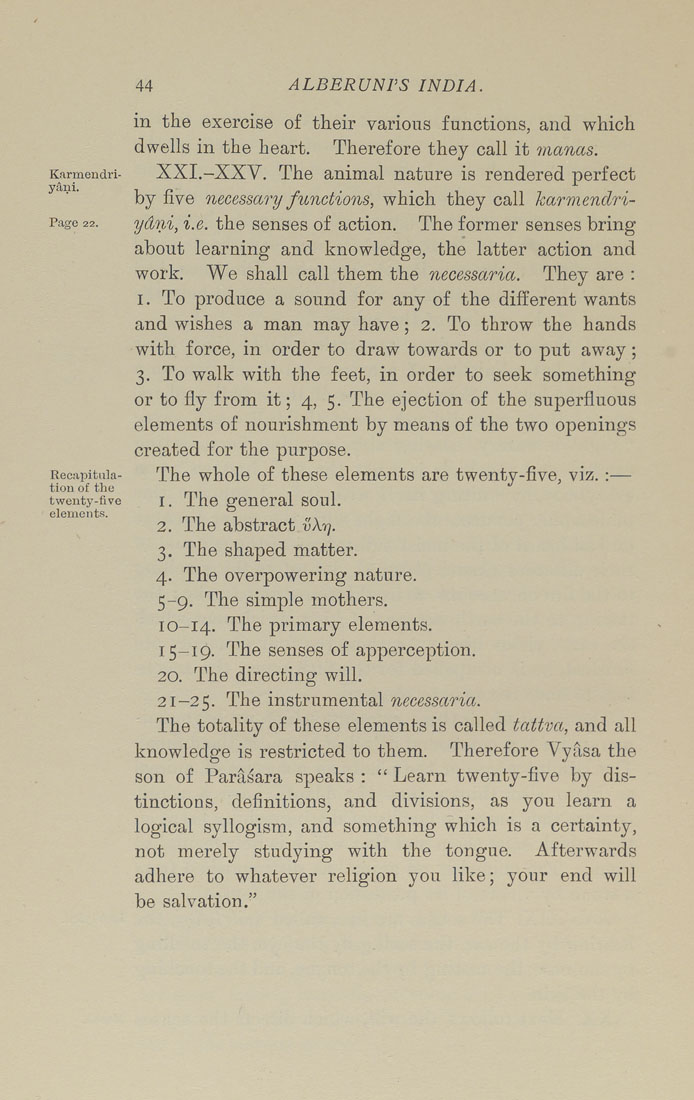Bīrūnī, Muḥammad ibn Aḥmad, Alberuni's India (v. 1)
(London : Kegan Paul, Trench, Trübner & Co., 1910.)
|
||
|
|
|
|
| Page 44 |

44 ALBERUNPS INDIA. in the exercise of their various functions, and which dwells in the heart. Therefore they call it manas. Karmendri- XXI.-XXV. The animal nature is rendered perfect by five necessary functions, which they call karmendri- Page 22. ydni, i.e. the senses of action. The former senses bring about learning and knowledge, the latter action and work. We shall call them the necessaria. They are : I. To produce a sound for any of the different wants and wishes a man may have ; 2. To throw the hands with force, in order to draw towards or to put away ; 3. To walk with the feet, in order to seek something or to fly from it; 4, 5. The ejection of the superfluous elements of nourishment by means of the two openings created for the purpose. Recapituia- The wholc of thcsc elements are twenty-five, viz.:— tionofthe twenty-five I. The general soul. elements. 2. The abstract vX-q. 3. The shaped matter. 4. The overpowering nature. 5-9. The simple mothers. 10-14. The primary elements. 15-19. The senses of apperception. 20. The directing will. 21-25. The instrumental necessaria. The totality of these elements is called tattva, and all knowledge is restricted to them. Therefore Vyasa the son of Parasara speaks : " Learn twenty-five by dis¬ tinctions, definitions, and divisions, as you learn a logical syllogism, and something which is a certainty, not merely studying with the tongue. Afterwards adhere to whatever religion you like; your end will be salvation." |
| Page 44 |







